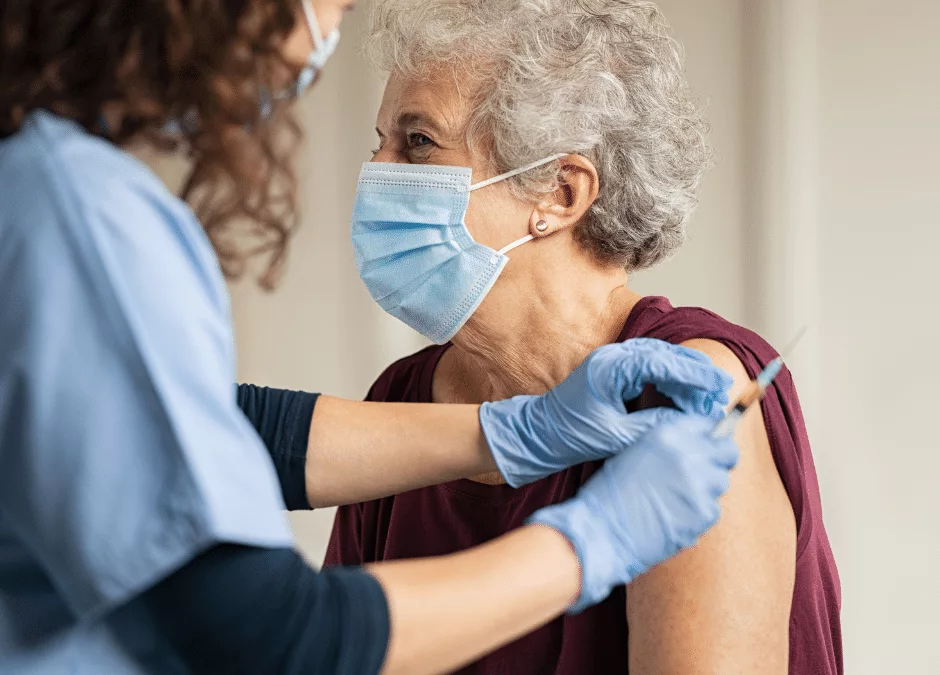As one of the people who had a strong reaction to the vaccine, I was very interested to read this article written by Fran Kritz for Verywellhealth.com.
Women seem more likely to experience COVID-19 vaccine side effects than men, according to a study published February 26, 2021, by the Centers for Disease Control and Prevention (CDC).1
After looking at the first 13.8 million doses administered (between December 14, 2020 through January 13, 2021), CDC researchers found that 79.1% of side effect reports came from women.
Common side effects included headaches, fatigue, arm soreness, and dizziness.
While rare, women were also more likely to have anaphylactic reactions to the vaccines, according to recent CDC data published in the Journal of the American Medical Association (JAMA).2 All 19 of the reported anaphylactic reactions to the Moderna vaccine occurred in women, as did 44 of 47 anaphylactic reactions to the Pfizer-BioNTech vaccine. (Rare instances of anaphylactic reactions have also been reported from the Johnson & Johnson vaccine, but the JAMA report only looked at shots administered when Moderna and Pfizer were the only two vaccines authorized.)
While anaphylactic reactions to the COVID-19 vaccines remain rare, the FDA requires that everyone who gets a vaccine be observed for 15 minutes after their shot in case of a reaction. Anyone who has ever experienced a previous anaphylactic reaction to any vaccination must wait 30 minutes. Anaphylactic reactions can be reversed by a drug called epinephrine, which all COVID-19 vaccine clinics are required to have on hand.
The authors of the CDC report were not surprised by the findings, lead author Julianne Gee, MPH, a CDC epidemiologist, tells Verywell. “In many of our safety surveillance summaries, a greater proportion of our reports are from women,” Gee says.
Gee says it’s possible more women took the time to report side effects to the CDC or to their doctors than men did. “But there are likely sex differences as well,” she says.
Expect Mild Side Effects From COVID-19 Vaccines, CDC Advisory Group Says
Female Immune Systems Respond Differently
Gee says that studies conducted before the authorization of COVID-19 vaccines have suggested that females have higher antibody responses than males to certain vaccines, including the flu shot.
“Women generally develop stronger immune responses, including high antibody levels and greater T-cell activation, which can lead to more rapid control of infection but may also lead to increased reactogenicity (side effects) after vaccines,” Gee says.
Sabra L. Klein, PhD, co-director of the Johns Hopkins Center for Women’s Health, Sex, and Gender Research, tells Verywell that women often develop greater inflammatory immune responses to stimuli, including vaccine antigens, which can explain the increased rate of side effects.
“I don’t think women should worry,” Klein says. “My goal is to educate women about their immune system and understand that when you experience fatigue, headaches, and even fevers, that is all caused by your immune system mounting a robust response to the vaccine. I would rather experience these minor side effects then be sick with COVID-19 or transmit SARS-CoV-2 to my aging parents or neighbors.”
These sex-based differences in the immune system are also reflected in the higher rates of autoimmune diseases in women compared to men.
Stronger Side Effects May Lead to More Protection
Saralyn Mark, MD, the lead on COVID-19 for the American Medical Women’s Association, tells Verywell that women’s robust immune systems also help to make them more resistant to infections.
“When a person responds to a vaccine there are reactogenic (side effects) and immunogenic (antibodies and T cells) responses. I celebrate both,” Mark, who has served as a scientific policy adviser to both NASA and the White House, says. “It tells us your body is doing what it needs to do to teach your body to respond in case you are exposed to the virus.”
Will You Need to Get a COVID-19 Vaccine Every Year?
What This Means for Future Vaccines
In light of the differences between women and men, Mark says the vaccine doses could become more precise over time. “In the future, we may be able to choose from a menu of vaccines depending on our individual needs,” she says. “For example, some people may have allergies to components of one vaccine or may not be able to come back for a second vaccine. We are all participants in a global scientific experiment, and we have to be nimble as the data evolves just as we did with mask and vaccine guidelines.”
While current vaccination efforts are all about getting shots into arms as quickly as possible, as researchers continue to analyze safety and efficacy, Mark says they’ll need “to take a hard look at age and sex in order to develop the best protocols and treatments to get the most effective responses with the least side effects.”
What This Means For You
Report any vaccine side effects to your doctor, the CDC, or FDA. The CDC and FDA are working to gather as much data as possible to ensure COVID-19 vaccines are safe for everyone.
If you’ve been vaccinated within the last six weeks or in line to be vaccinated, consider participating in the CDC’s V-Safe program. V-safe is a smartphone-based tool used to gather data, including side effects on the COVID-19 vaccines.
Have you had your Covid-19 vaccine yet? What effect did it have on you, if any? Pop your experience in the comments.

